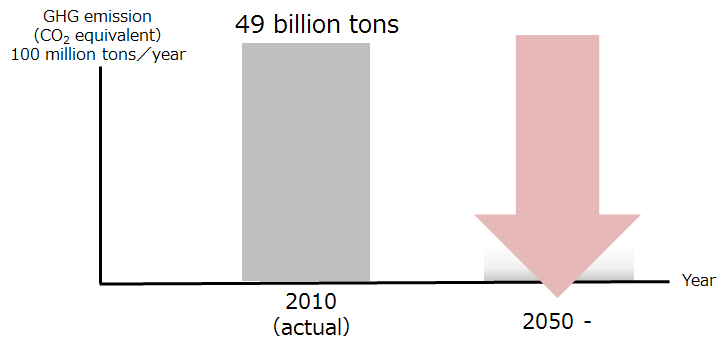- Home
- Policies
- METI Quick Reads
- Realizing the Virtuous Cycle of Environment and Economy - Tokyo “Beyond-Zero” Week (Part One)
Realizing the Virtuous Cycle of Environment and Economy - Tokyo “Beyond-Zero” Week (Part One)

The Paris Agreement is an international framework on the issue of climate change agreed upon in Paris in 2015 at the United Nations Climate Change Conference (COP), a meeting to discuss international agreements on the reduction of greenhouse gases. The Paris Agreement sets forth goals, including:
(i) Holding the increase in the global average temperature to well below 2°C above pre-industrial levels;
(ii) Continuously pursuing efforts to limit the temperature increase to 1.5°C above pre-industrial levels; and
(iii) In order to realize this, achieve balance between anthropogenic emissions by sources and removals by sinks of greenhouse gases in the second half of this century (carbon-neutral efforts in the entire world).
Worldwide Carbon-Neutral Efforts to Achieve
Regarding carbon-neutral efforts, it is still fresh in our minds that in July this year Apple had set forth a goal of reducing the company’s climate impact to practically zero by 2030 throughout its entire supply chain, including the production of the products of the company, logistics, use of the products, and recycling. Like this, many countries and companies throughout the world are currently setting forth their policy for carbon-neutral efforts in order to achieve the goals of the Paris Agreement.Also, in Japan, the Long-Term Strategy under the Paris Agreement as Growth Strategy was formulated in June 2019. Setting the ultimate goal of “decarbonized society,” and ambitiously aiming to realize that as early as possible in the second half of this century, the country declared to make bold efforts towards the realization of reducing the emission of greenhouse gases by 80% by 2050. Further, the Zero Emission Innovation Strategy, an action plan based on the Long-Term Strategy, was formulated in January 2020. Japan will aim to establish innovative technologies that allow carbon neutral efforts to become possible worldwide, as well as to retroactively reduce CO2 emissions in accordance with the stock-based approach (“Beyond-Zero” initiative), by 2050.

Links to related information
Last updated:2024-04-10